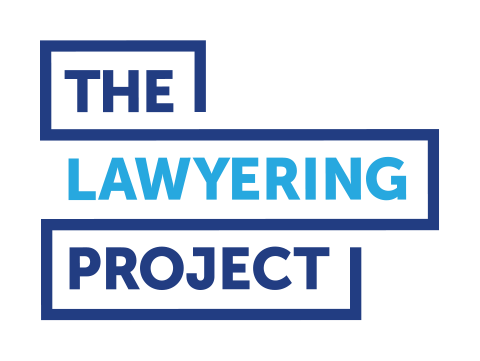North Dakota families sue state to block law banning health care for transgender and nonbinary kids
09.14.2023 — (PRESS RELEASE) Today three North Dakota families seeking to end North Dakota’s criminalization of essential health care for transgender and nonbinary young people filed a lawsuit asking a North Dakota circuit court judge to immediately block enforcement of the law — restoring parents’ right to parent their children and their children’s right and ability to receive standard medical care as prescribed by their doctors.
Plaintiffs, who also include a North Dakota pediatrician, say the health care ban violates the North Dakota Constitution by singling out transgender children for unequal treatment under the law, and represents an unacceptable governmental intrusion into families’ private lives and personal decisions.
“We are standing up for all North Dakota kids and families whose lives have been upended by these politically motivated attacks on our rights, our personal freedom, and our ability to decide for ourselves what’s best for our children,” said Devon Dolney, mother of one of the child plaintiffs in the case.
Said Christina Sambor, attorney and North Dakota state director for Gender Justice, one of the organizations representing the families:
“Denying health care to the transgender and nonbinary youth who need it is cruel to them and devastating to the families who love and support them. It is egregious governmental overreach and an unconstitutional attack on individual liberty and personal freedom. With this lawsuit, we’re asking the court to put a stop to it.”
Represented by Gender Justice, the Lawyering Project, and Ciresi Conlin LLP, the three North Dakota families describe in the lawsuit how their lives and health care have been significantly disrupted by the law. Passed by the North Dakota legislature and signed by Gov. Doug Burgum in April 2023, the law makes it a misdemeanor — with a sentence of up to 360 days in jail and $3,000 in fines — for doctors to prescribe medication such as hormone therapy and puberty blockers to transgender or nonbinary children. It remains legal for doctors to prescribe these medications to children who are not transgender.
The families, two of whom wish to remain anonymous due to privacy and safety concerns, have children who were already undergoing medical treatment for gender dysphoria when the health care ban took effect. Now, all of the families are forced to travel out of state to continue receiving care, with some traveling as many as seven hours roundtrip.
In personal declarations filed alongside the lawsuit, they describe the emotional, psychological, and financial toll the health care ban has already taken: school and work days missed due to the extensive travel now required to get care, severe anxieties about the prospect of losing access to the health care that has dramatically improved their lives, and concerns that they might need to uproot their lives and leave North Dakota entirely.
“It makes me sad and angry that people making laws in North Dakota are trying to keep me from having access to care that has helped me live a more full and happy life,” said Tate Dolney, a 12-year-old transgender boy plaintiff. “I wish they would understand that me and many other people are just human beings like them trying to live a happy life.”
Said Pamela Roe, a 15-year-old transgender girl plaintiff who reported concerns about self-harm related to the prospect of losing the health care she has been receiving:
“Gender dysphoria is a medical condition. Receiving care for it is treatment, and not receiving it is a nightmare. It’s no different than taking medications away from anyone else suffering from a medical condition who really needs them. It’s scary, and it affects your life in ways that I just don’t think people understand.”
Every major medical organization, including the American Academy of Pediatrics, the American Medical Association, and the American Psychiatric Association, supports the provision of age-appropriate, gender-affirming care for transgender and nonbinary people.
Recent research published by the American Medical Association showed that when transgender and nonbinary kids received the very same care that’s been banned for them in North Dakota, their odds of depression decreased by 60 percent and their odds of self-harm and suicide decreased by 73 percent.
“These treatments are essential, and these kids have urgent medical needs that aren’t being met because of this law,” said Dr. Luis Casas, a plaintiff and pediatric endocrinologist who has treated all three of the child plaintiffs.
“It may be difficult for some of us to understand what it’s like to have a transgender child, but we should all be able to agree that health care that significantly decreases the risk of depression and suicide in children should not be made illegal,” said Casas.
The lawsuit notes that the treatments banned by the North Dakota law remain available to all other young people in North Dakota who do not identify as transgender or nonbinary — including care for boys who develop unwanted breast tissue, girls who wish to reduce overdeveloped breasts, and all children who start puberty too early.
“Based on unfounded fears and their own political ideologies, state lawmakers have singled out a small group of North Dakota kids for unequal treatment under the law simply because they are transgender,” said Tanya Pellegrini, Senior Counsel at the Lawyering Project. “Denying these children widely used, evidence-based, often lifesaving health care while it remains available to all other young North Dakotans is unfair, unconstitutional, and cruel.”
The plaintiffs, attorneys, and organizations involved in the lawsuit are asking the court for a swift preliminary injunction to prevent further harm to North Dakota’s transgender and nonbinary youth while the case is pending — and to ultimately block the health care ban permanently as a violation of the North Dakota Constitution.
“We are not asking for anything that other people don’t have,” said Jane Doe, mother of one of the child plaintiffs. “We just want to live our own lives and make our own decisions. We want our child to live a happy life, and to be left alone. He deserves the same rights and the same respect that everyone else gets, and that’s why we’re doing this.”
###

